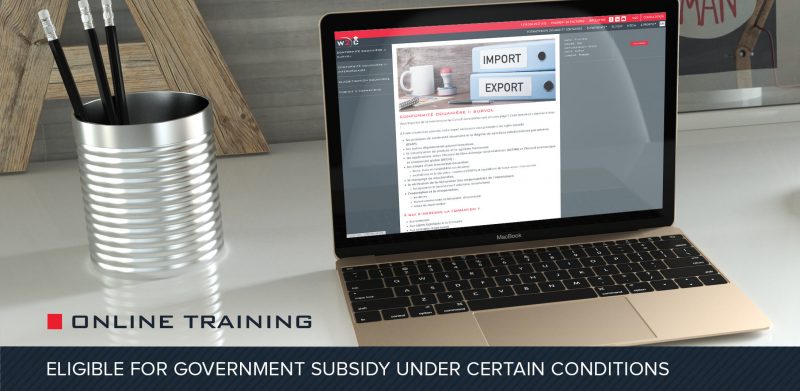
Investing in customs compliance and training during COVID-19
The COVID-19 pandemic will continue to have far-reaching effects on international trade as well as on the import and export operations of Canadian businesses. Slowdowns in manufacturing and retail activities will inevitably result as the crisis persists in varying degrees over the coming weeks and months.
The Government of Canada is committed to keeping borders open for commercial business, even as it restricts non-essential travel for tourism and leisure. Customs agencies around the world, including the CBSA, have introduced various measures aimed at helping importers and exporters during this time of crisis.
The latest news is that Canada, the United States and Mexico are moving ahead with the implementation of the CUSMA agreement, which will replace NAFTA. The new CUSMA enters into force on July 1, 2020 – less than eight weeks away. Businesses that relied on the 26-year-old NAFTA to enter their goods on a duty-free basis into the neighboring markets of their North American partners will need to get ready by July 1 if they want to comply with the new rules and continue to take advantage of free market access for their goods. Moreover, CUSMA may afford new opportunities that weren’t available under NAFTA.
Also noteworthy is the new Incoterms 2020, which was introduced at the beginning of this year. Due to the pandemic, many businesses – along with their employees who oversee logistics and customs activities – have not been able to familiarize themselves with these new rules.
While the challenges posed by COVID-19 are numerous, the reduction in volume of day-to-day operations resulting from the economic slowdown can give you an opportunity to (A) invest in the customs compliance enhancements you never had time to address in normal circumstances, or (B) undergo specialized training on customs programs, improvement processes and free-trade opportunities for your business.
Compliance discussions often focus on avoiding losses. At the highest level, an effective customs compliance program provides benchmarks to help your company achieve business objectives while mitigating compliance risks. Moreover, compliance activities create positive value for a business. A company with an effective customs compliance program is better able to succeed in a high-risk environment like the one created by the current pandemic. Conversely, your competitors with weaker compliance programs may decide that they are not up to the challenge of operating in such a market. Your ability to operate efficiently in this higher-risk environment gives your company a significant competitive advantage.
In addition, the government of Quebec recently launched the Concerted Action Program for Maintaining Employment (officially the Programme d’actions concertées pour le maintien en emploi – PACME). The purpose of PACME is to provide support to Quebec businesses that have experienced a decline in their operations as a result of COVID-19. More specifically, this program offers direct financial assistance for HR management and worker-skills development activities. During the current hiatus created by COVID-19, PACME allows businesses to upgrade their workforce skills and get ready for economic recovery.
W2C Customs Trade Management is certified by Emploi-Québec to offer professional training to Quebec businesses in numerous areas of customs compliance management, free trade agreements and Incoterms. Most of W2C’s standard and customized training courses are eligible for the PACME subsidy, which covers 100% of training costs if the program’s conditions are met.
The Quebec government has granted a $100 million budget to the program, which will run for the next six months only and be administered on a first-come first-served basis. Projects will be accepted until September 30, 2020, or until the $100 million budget envelope has been used up. Training projects submitted can be of variable duration (from a few days to a few weeks) depending on the needs established.
Until confinement and social distancing restrictions are lifted, all our training courses and seminars will be made available online. Click here to consult the list of training courses and seminars offered by W2C, most of which can be adapted to clients’ specific needs. Other training modules are available upon request, such as Incoterms 2020, Trusted-Trader programs (e.g. PIP and C-TPAT) or Preparing for CBSA’s CARM Initiative.
If you are interested in one of W2C’s customs training modules or how to take advantage of the PACME subsidy, please contact us today at formation@w2c.ca.
In addition to customs training, W2C offers a full of suite of customs consulting services, which include:
- Evaluation and appraisal of customs values
- Determination of tariff classification of imported/exported goods under the Harmonized System
- Determination of requirements of other Participating Government Agencies
- Support during customs audits
- Appeal and recourse actions on penalties and duty/tax reassessments
- Preventive (simulated) audit services to assess your company’s level of compliance
- Requests for advance rulings with CBSA or bonding rulings with U.S. CBP
- Country of origin analysis on any of Canada’s free trade agreements, for marking or duty preference
- Goods affected by U.S. safeguard measures and Substantial Transformation analysis
- Duty recovery services (e.g. drawbacks and refunds)
- Applications to special customs programs (Duties Relief, Bonded Warehouse, Trusted-Trader Initiatives, etc.)
For more information on W2C’s Customs Training and Customs Consulting services, please contact your W2C representative today.